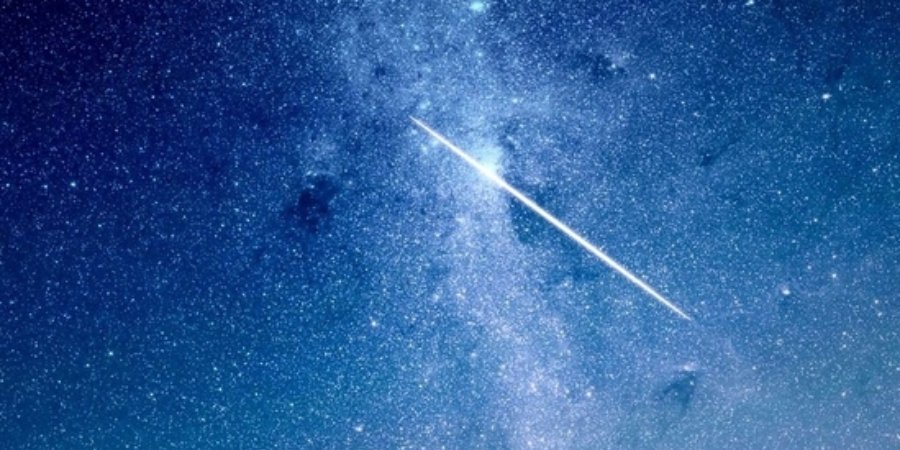Astronomers Await Potential Stellar Explosion
The astronomical community is on high alert as speculation rises about the possible explosion of the Blaze Star tonight. This comes after a key prediction made by Jean Schneider of the Paris Observatory, who estimated that the event could occur on either March 27 or November 10, 2025.
The Blaze Star, also known as T Coronae Borealis (T CrB), is a recurring nova located in the constellation Corona Borealis. It has erupted multiple times in recorded history, with its last explosion occurring in 1946. If Schneider’s prediction is accurate, tonight could mark a historic event in astronomy.
Blaze Star: What Is It and Why Does It Matter?
T Coronae Borealis is a binary star system consisting of a white dwarf and a red giant. Over time, the white dwarf pulls hydrogen from the red giant onto its surface. When the accumulated material reaches a critical mass, a thermonuclear explosion occurs, causing the star to brighten dramatically before fading back into obscurity.
The Blaze Star is categorized as a recurring nova, meaning it erupts at relatively regular intervals. Past eruptions were recorded in 1787, 1866, and 1946, leading astronomers to predict another outburst roughly every 80 years.
With the last explosion occurring in 1946, scientists have been expecting a new eruption anytime between 2023 and 2026. However, several false alarms in recent years have left astronomers both excited and cautious.
Jean Schneider’s Prediction and Scientific Analysis
In October 2024, Jean Schneider published a research note in the American Astronomical Society (AAS) predicting two possible dates for the Blaze Star’s next explosion:
- March 27, 2025
- November 10, 2025
Schneider’s calculation method involved analyzing:
✔ Past eruption dates
✔ Orbital movements of the binary system
✔ Changes in the star’s brightness and spectral emissions
These calculations suggested that the conditions were nearly perfect for a new explosion on one of these two dates.
Will the Blaze Star Explode Tonight?
Despite the excitement, astronomers cannot confirm with certainty whether the explosion will happen tonight. Several false alarms in the past few years have left experts cautious.
For instance, in 2023, astronomers noticed a significant drop in brightness, a common precursor to a nova explosion. However, the event never occurred, leading to widespread disappointment among star-watchers.
Similarly, early 2024 saw another sudden brightening of the Blaze Star, fueling rumors of an imminent eruption. But once again, the explosion did not happen.
Tonight’s potential event, however, has stronger scientific backing due to Schneider’s precise calculations and recent observations of increased activity around T Coronae Borealis.
How to Watch the Blaze Star Explosion
If the Blaze Star does explode tonight, it will be one of the brightest celestial events of the year. Here’s what you need to know:
🔭 Visibility: The explosion will be visible to the naked eye in dark, clear skies.
📍 Location: Look towards the constellation Corona Borealis, which lies between Hercules and Bootes in the northern hemisphere.
⏰ Timing: The explosion is expected anytime during the night of March 27.
🔎 Equipment: While the nova will be visible without telescopes, using binoculars or telescopes will enhance the viewing experience.
📡 Live Streams: Major space agencies like NASA, ESA, and various observatories may stream the event online.
What Happens If It Doesn’t Explode?
If the Blaze Star does not explode tonight, astronomers will shift their focus to the next predicted date—November 10, 2025. However, the exact timing remains uncertain, and an eruption could happen anytime in the coming months.
Experts will continue to monitor:
✔ Brightness fluctuations
✔ Spectral emissions
✔ Temperature changes
These indicators could provide a more accurate timeframe for when the Blaze Star will finally erupt.
A Rare Cosmic Spectacle
If the Blaze Star explodes tonight, it will be a once-in-a-lifetime event for astronomers and skywatchers alike. The nova will shine as bright as a first-magnitude star, making it easily visible in the night sky.
Even if it doesn’t happen tonight, the countdown has begun, and the Blaze Star is closer than ever to its next historic eruption.
So, keep your eyes on the sky and stay tuned for updates—this cosmic event could unfold at any moment!
Related Links & Resources:
📌 NASA’s Latest Observations on Blaze Star
📌 Jean Schneider’s Research on Blaze Star
📌 How to Locate the Corona Borealis Constellation
📌 Live Stream of Astronomical Events
🚀 Follow us for real-time updates on space events!







